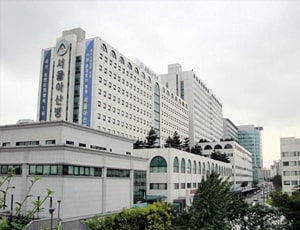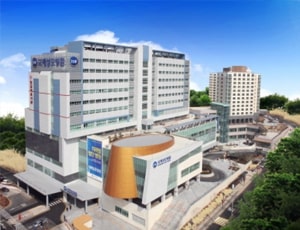The average cost of Oral cancer Treatment in Seoul approximately starts from USD 8250
Treatment cost

Asan Medical Centre located in Seoul, South Korea is accredited by ISO. Also listed below are some of the most prominent infrastructural details:


International St. Mary's Hospital located in Seoul, South Korea is accredited by JCI. Also listed below are some of the most prominent infrastructural details:
Oral cancer, commonly referred to as mouth cancer or throat cancer, is an uncontrollable growth of cells in the oral cavity. It refers to cancer that develops in any of the parts that make up the mouth. It can include cancer of the lips, tongue, cheeks, the floor of the mouth, pharynx (throat), hard and soft palate, and either of the sinuses. Mouth and oropharyngeal cancer can be life-threatening, but it could be prevented if the cancer is diagnosed early enough.
Oral cancer is a result of a mutation in the DNA of the cells in the mouth. Certain identified risk factors for mouth cancer predisposes a person to oral cancer.
There are some typical signs of mouth cancer that a majority of patients experience. Make sure to visit your doctor or dentist in case you experience any of the following signs of mouth cancer:
Oral cancer treatment is similar to that for other types of cancers. You may have to go for just one type of treatment or a combination of different cancer treatment options. Your doctor will suggest you the most suitable treatment depending on the location of cancer, its stage, and your overall health status.
Ask your healthcare adviser for the best multiple options and choose the one that meets your expectations
The average cost of Oral cancer Treatment in Seoul starts from $8250. Many multispeciality hospitals which are JCI certified are approved to operate a Oral cancer Treatment in Seoul.
Oral cancer Treatment cost in Seoul varies from one hospital to the other. There are many hospital who cover the cost of pre-surgical investigations of the patient in the treatment package. The Oral cancer Treatment cost in Seoul includes the cost of anesthesia, medicines, hospitalization and the surgeon's fee. Stay outside the package duration, port-operative complications and diagnosis of a new condition may further increase the Oral cancer Treatment cost in Seoul.
There are many hospitals across the country that offer Oral cancer Treatment to international patients. Some of the best hospitals for Oral cancer Treatment in Seoulinclude the following:
After Oral cancer Treatment in Seoul, the patient is supposed to stay in guest house for another 16 days. This time frame is important to ensure that the surgery was successful and the patient is fit to fly back.
Apart from the Oral cancer Treatment cost, there are a few other daily charges that the patient may have to pay. These are the charges for daily meals and accommodation outside the hospital. The per day cost in this case may range from 40 USD.
The patient is supposed to stay at the hospital for about 5 Days after Oral cancer Treatment surgery for monitoring and care. This phase is important to ensure that the patient is recovering well and is clinically stable. During this time, several tests are performed before the patient is deemed suitable for discharge.
Out of all the hospitals in Seoul, there are about 2 Hospitals best hospitals for Oral cancer Treatment in Seoul. These hospitals have proper infrastructure for the treatment of patients who require Oral cancer Treatment. Also, these hospitals follow the necessary guidelines as required by the medical associations for the treatment of Oral cancer Treatment patients.
Some of the most sought after doctors for Oral cancer Treatment in Seoul are: